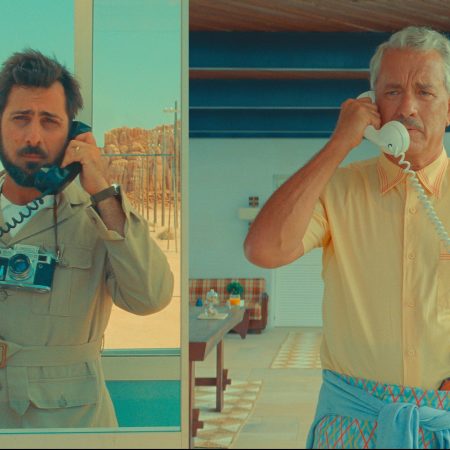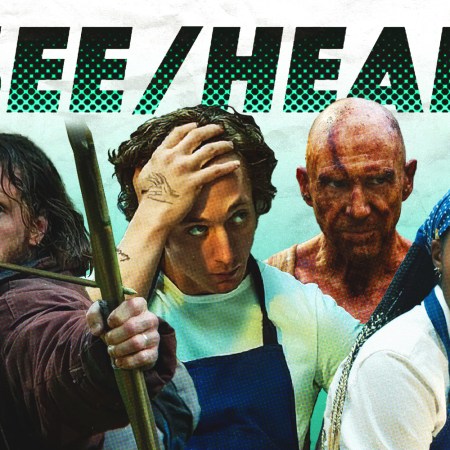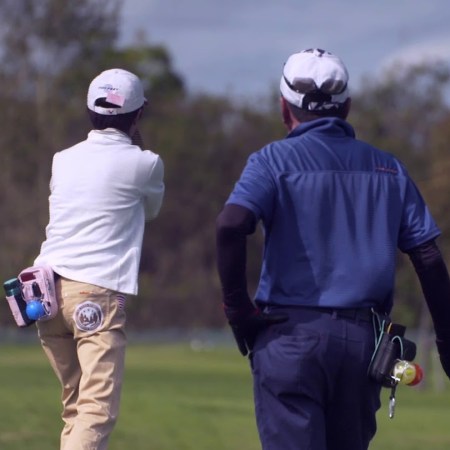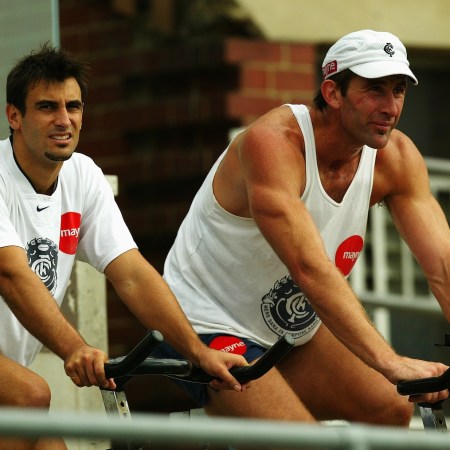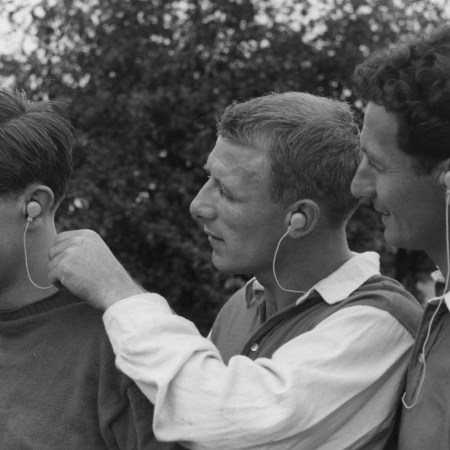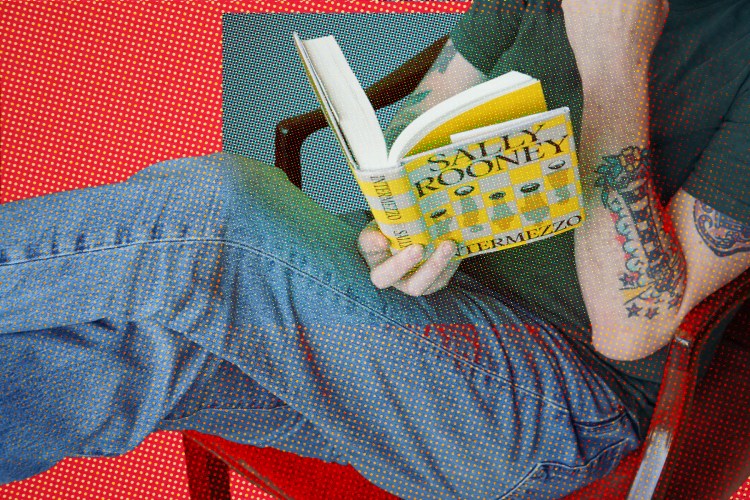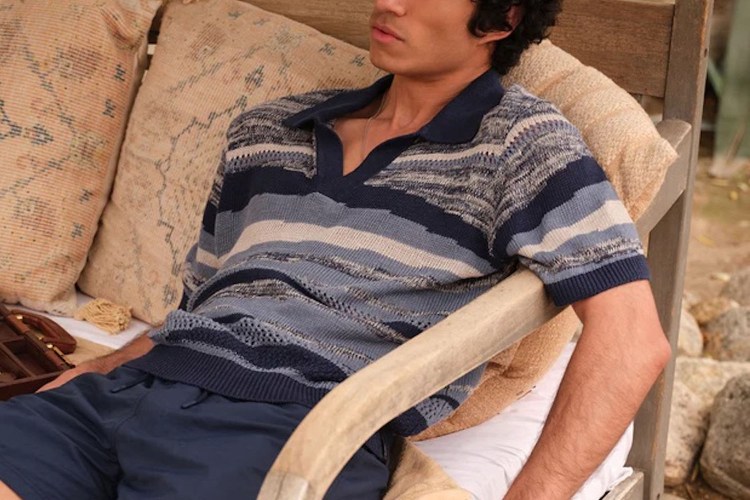Warning: This story contains minor spoilers for The Phoenician Scheme.
It’s hard to think of a director with a more instantly recognizable aesthetic than Wes Anderson. You know all the tropes: Gorgeous color palettes and intricately designed sets. Title cards written in all-caps Futura. A tight shot of a handwritten note. Precocious children. Sneakily profound or devastating lines delivered in disaffected deadpan. Bill Murray and Jason Schwartzman, probably.
But beyond the distinct visuals and filmmaking techniques or frequent collaborators who tend to turn up in every movie, nearly every Wes Anderson project also features some variation on the same two themes: bad dads and mortality.
You know the type: charming rascals with big vocabularies and some sort of scheme who have hurt their kids in some sort of deep way — their absence, their infidelity or their ridiculously high standards — who finally begin to see the error of their ways and make amends when confronted with looming death, whether it’s their own or that of someone close to them. (Dead wives and mothers are another common Anderson theme.) The most obvious example is Royal Tenenbaum (Gene Hackman), the gruff-yet-charismatic patriarch in The Royal Tenenbaums whose questionable parenting led all three of his talented children — Richie, Chas and his adopted daughter Margot, frequently referred to by him as “my adopted daughter Margot” — to self-destruct in one way or another.
Sometimes they’re not actual dads but instead father figures to a young protagonist, like Herman Blume (Bill Murray) in Rushmore or Gustave H. (Ralph Fiennes) in The Grand Budapest Hotel. Sometimes their actual biological paternity is questionable, as is the case with Steve Zissou (Murray) in The Life Aquatic with Steve Zissou and, most recently, Zsa-Zsa Korda (Benicio del Toro) in The Phoenician Scheme. Every now and then, they don’t even appear on screen — as in The Darjeeling Limited, where grieving brothers Francis (Owen Wilson), Peter (Adrien Brody) and Jack (Jason Schwartzman) reunite in India one year after their father’s funeral and spend the entirety of the movie toting around his baggage, both literally (his monogrammed luggage) and figuratively (generational trauma). Once in a great while, they’re not even a character originally dreamed up by Anderson, like Mr. Fox (George Clooney) in his adaptation of Roald Dahl’s Fantastic Mr. Fox, but they’re a perfect thematic fit nonetheless.
You can feel the influence of Anderson’s previous bad dads — most obviously Tenenbaum, but also touches of Zissou — in The Phoenician Scheme‘s Korda. He’s a shady 1950s businessman whose latest convoluted scheme involves using slave labor and famine in the fictional Phoenicia to drive down construction costs. Having just survived his sixth assassination attempt, he reconnects with his daughter Liesl (Mia Threapleton), a novice nun who he sent away to live in a convent at the age of five because he couldn’t be bothered with her after her mother died under mysterious circumstances.
Despite having nine sons — many of whom are adopted because he’s “playing the odds” that one of them will turn out to be a success; essentially a bunch of tiny, male Margot Tenenbaums — he informs Liesl that she is the sole heir to his estate and ropes her into his plot to swindle his investors. She starts out pious and deeply annoyed by him, naturally, only lured in by the promise of justice for her dead mom, but soon enough she’s throwing back beers with Bjorn, the goofy Norwegian entomologist played by Michael Cera (who, it must be said, completely steals every scene he’s in) and accepting ornate gifts from her dad.
The Definitive Ranking of Every Single Wes Anderson Character
From “Bottle Rocket” to “Asteroid City,” we rated every characterEven beyond the bad dad at its center, everything in The Phoenician Scheme is classic Anderson, so much so that it occasionally verges on self-parody. (The way a stone-faced, monotone Liesl says “I love it” when accepting a bejeweled pipe from her father feels like Anderson poking fun at his own style.) Why, then, is it receiving such mixed reviews? Anderson’s style has always been polarizing; you either love it or you hate it. But The Phoenician Scheme seems to be dividing the “love it” camp, with some critics calling it his “best movie in over a decade” and others calling it “his worst yet.” Why isn’t it a consensus favorite a la Rushmore or The Royal Tenenbaums? Why does the whole “death comes for us all, so bad dads and their neurotic children must meet each other in the middle” thing feel a bit hollow this time around?
To put it simply, The Phoenician Scheme feels too Wes Anderson-y. It’s Anderson leaning into all his worst impulses — style over substance, deadpan humor reading as completely devoid of emotion. It’s a movie that has a lot to say, about things like capitalism and greed and faith and forgiveness, but none of its conclusions feel particularly earned. Anderson’s early work was always heavily stylized, showing off his signature quirks and impeccable production design, but films like Rushmore and The Royal Tenenbaums and even the underrated Darjeeling Limited still felt grounded in reality. The characters are twee and whimsical, but they are all still very clearly human beings, grappling with human emotions, living in a world that, while meticulously crafted by Anderson, still feels vaguely tethered to real life. The Phoenician Scheme, on the other hand, feels like watching a live-action cartoon.
Much has been made about the fact that this is Anderson’s “most violent movie to date,” but it’s not like he turned around and made his own Saw flick. This is Wes Anderson violence we’re talking about, stylized in a way that makes even a guy getting blown in half look incredibly cutesy. The blood splatters are clean and carefully deployed, the shootings and plane crashes are all survivable (well, except for the blown-in-half guy) and a “blood transfusion” consists of two characters sitting stoically while blood pumps directly from one to another via one simple, rubber tube. Even when a villain gets killed by a hand grenade, we don’t see a shower of limbs and guts; instead, he simply disappears in a cloud of glittery purple dust.
The Phoenician Scheme is probably Anderson’s most fantastical film to date, one in which a hastily muttered prayer causes a prince who’s never touched a basketball before to sink an underhand shot from half-court and a robber baron can survive multiple plane crashes. It’s all fun, but it all lowers the emotional stakes. Even magical realism still needs the “realism” part. Maybe it’s time Anderson kills his bad dads once and for all.
This article appeared in an InsideHook newsletter. Sign up for free to get more on travel, wellness, style, drinking, and culture.


